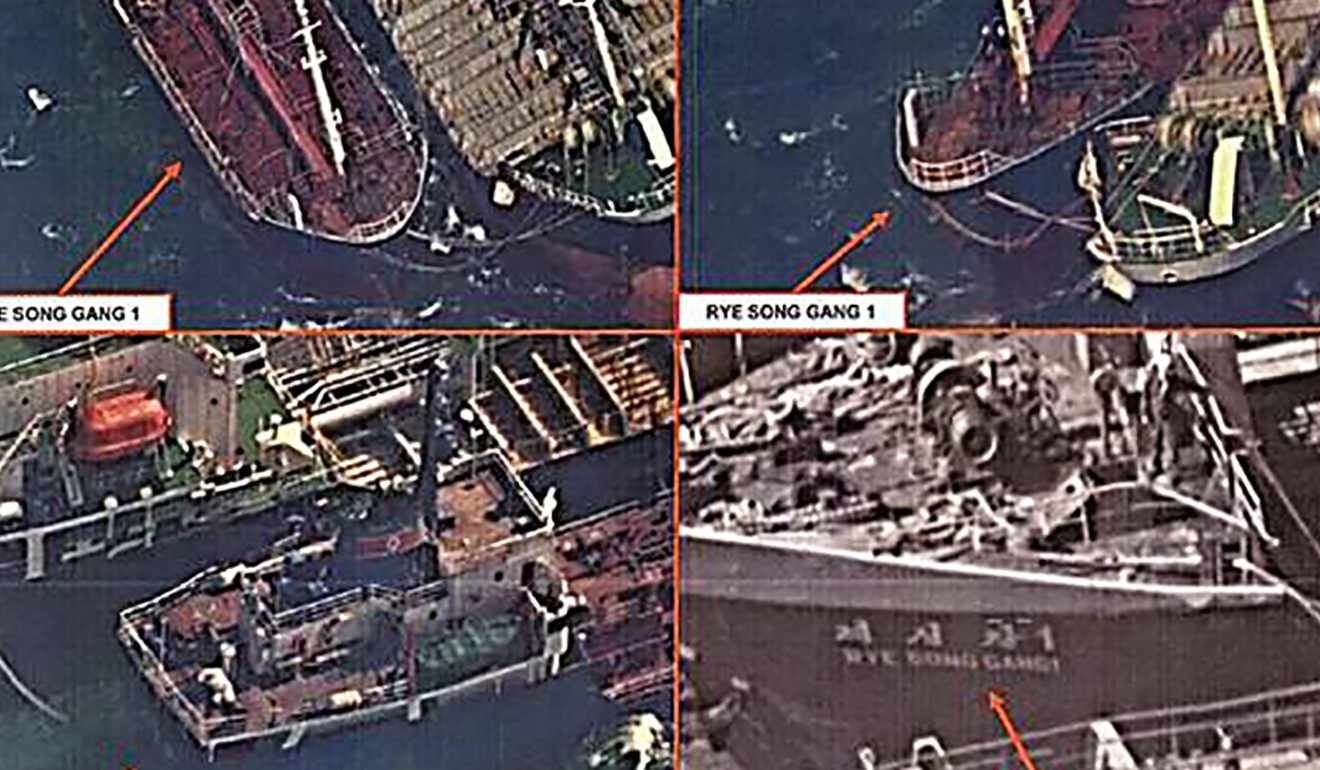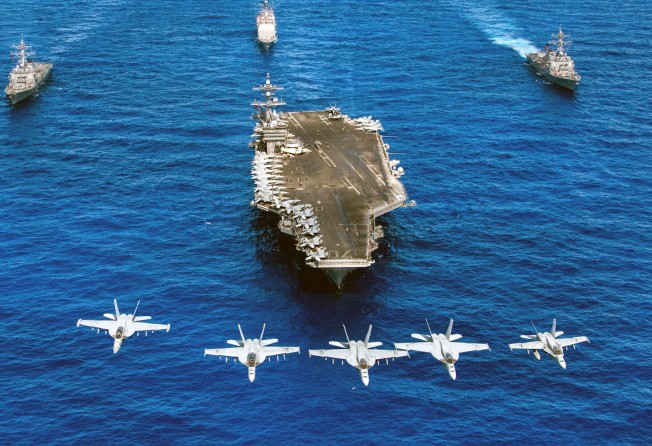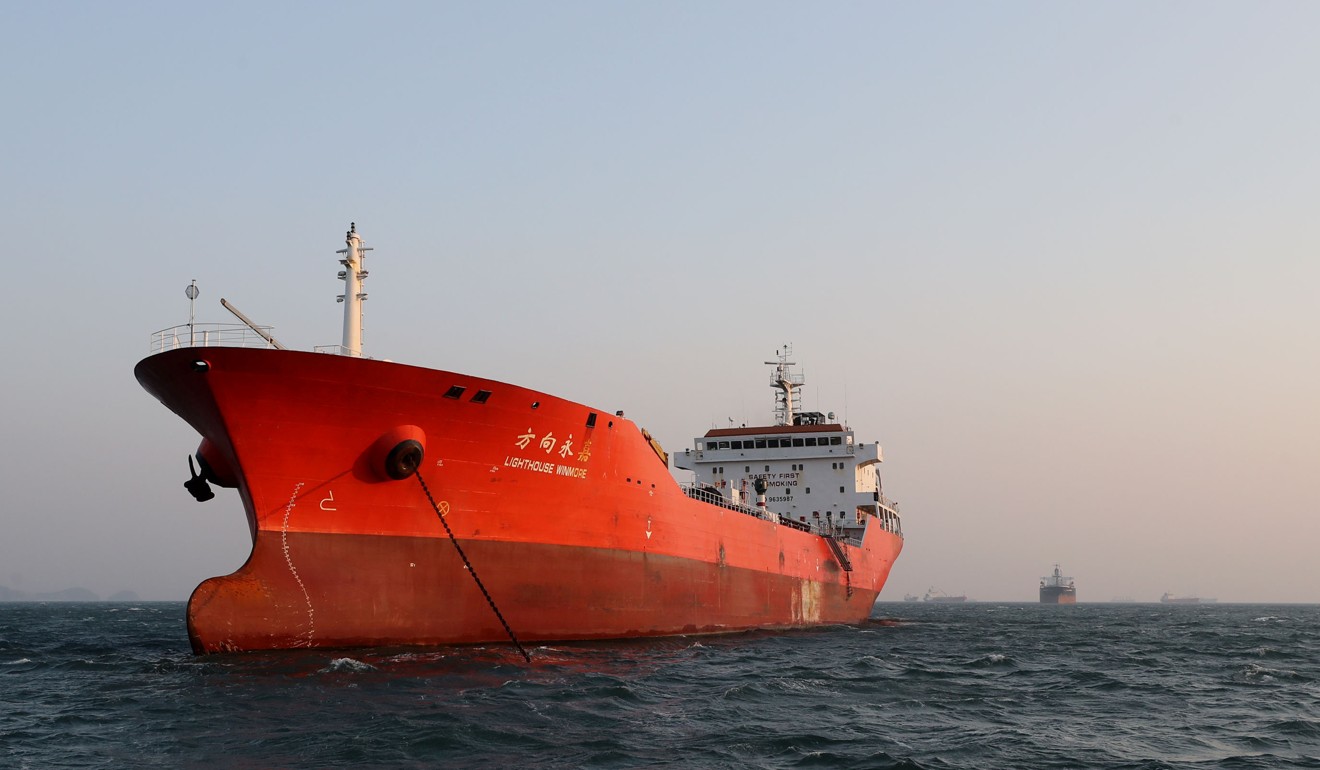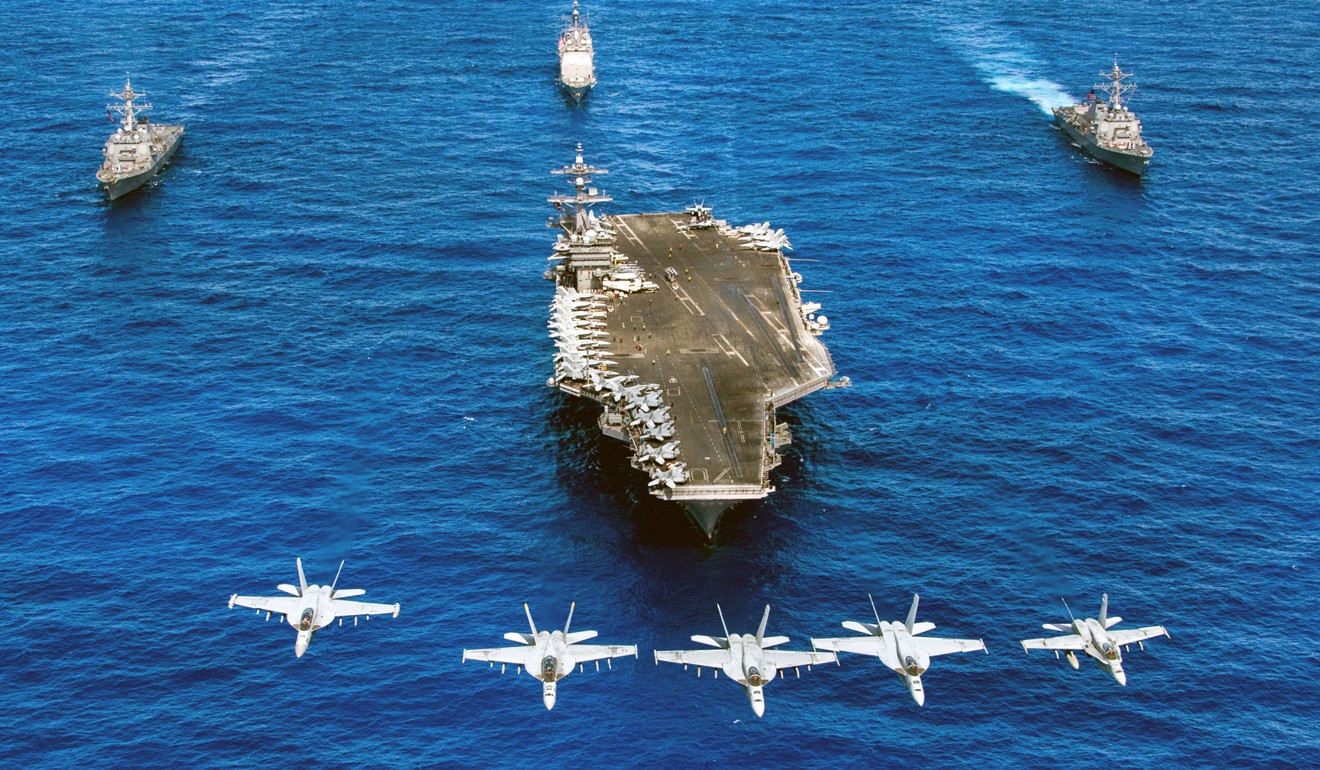
‘Ring of steel’: is seizure of Hong Kong ship sign of US moves for an oil blockade on North Korea?
A top US adviser and former lieutenant commander calls for a naval blockade as he warns the time for negotiations with Pyongyang has passed

The impounding of three foreign-flagged ships accused of secretly transferring oil to North Korean vessels in international waters, along with satellite images of Chinese tankers similarly contravening United Nations resolutions by trans-shipping fuel at sea, prove that existing sanctions are not working, believes Gregory Keeley.
And now the retired lieutenant commander, who served in the navies of both the United States and Australia and has since been senior adviser to both the vice-chairman of the US House Armed Service Committee and the chairman of the House Foreign Relations Committee, says that a far more forceful message needs to be sent to North Korea and the countries that continue to prop it up.
Keeley says that a “ring of steel” naval blockade needs to be introduced in the waters surrounding North Korea with the power to stop and search vessels operating under any flag to ensure that they are not carrying contraband bound for the regime of Kim Jong-un.

“The recent interdictions of these ships just really points to the fact that UN sanctions are not working and are toothless,” Keeley tells This Week in Asia.
“A naval blockade is the only effective way to choke off the oil supply to the North, but we must also understand that if they have been illicitly getting their oil supplies in this way, then they are doing exactly the same with banned missile and nuclear technology, with components for their air force, with heavy equipment,” he says.
“If we do not put a ring of steel around the peninsula, then China, Russia and other bad actors in the region will be able to continue to deliver banned goods because North Korea is clearly willing to pay the going price.”

Among the ships that were reportedly used to break the sanctions was the Hong Kong-flagged Lighthouse Winmore. The tanker was inspected and seized by South Korean customs officials in November.
Keeley dismisses suggestions that the transfers could have been carried out by companies looking to make a quick buck and without the knowledge of Beijing or Moscow. “They may claim they did not know, but that is nonsense because there is no way that the authorities in such closely controlled countries did not know that this sort of smuggling was going on,” he says. “That’s just not credible.”
Keeley brushes off Kim’s offer of talks to take part in next month’s Winter Olympics in South Korea as another example of Pyongyang playing for time.

“It’s a complete red herring for Kim to offer to talk about the Winter Olympics; he is using the time he wins to improve his own military capabilities and if South Korea, the US or the rest of the international community go down that road with him then they will be doing the world a great disservice.”
Keeley’s solution, which has been shared with high-ranking military officials in the Pentagon, would be a coalition of allied navies that would effectively blockade the North’s maritime supply routes.
“There are some who would claim that a blockade is an act of war, so it could be called a ‘sea lane embargo’ or something similar, and I would expect that the navies of Japan, South Korea, Australia, Britain and Nato to play a part. Clearly the effort would be led by the US, which still has three naval battle groups in the region, but I do not believe that China or Russia would be willing to escalate any situation that might develop because there is no upside for them.”

Keeley’s proposal is for any naval coalition to ignore the UN, because both China and Russia hold vetoes in that forum “and would immediately use them,” he said.
The interdiction flotilla would be led by the US and Washington would also ask other allies in South-east Asia, such as Thailand, Vietnam and the Philippines, to send even a token force of coastal defence craft simply to underline the will of the international community.
North Korea has indicated the degree to which it fears a naval blockade, with state media in December warning that it would consider the effective closure of its sea lanes as a “wanton violation” of its sovereignty and dignity and “an act of war”.
Garren Mulloy, a defence expert and an associate professor of international relations at Japan’s Daito Bunka University, warns that a naval blockade could be “highly provocative” to many actors in the region.
“We have to be very careful with the language that is attached to any such action,” he says. “If it is simply designed to enforce current UN sanctions on the North, then that could be described as law enforcement rather than a naval blockade.
“But if the plan is for an absolute blockade, then we need to be clear on the eventual aim or the end purpose,” he says. “If that is regime change in the North – and while Washington is not saying that, I am sure there are many who are thinking it – then we have to be prepared for the massive inevitable instability that is going to unleash.”
Keeley agrees that any effort to bring North Korea to heel is going to face significant hurdles, but he cautions that time is running out.
“We have reached the point at which North Korea is close to having the ability to lob a nuclear weapon into San Francisco,” he says. “The international community cannot let this go any further.”